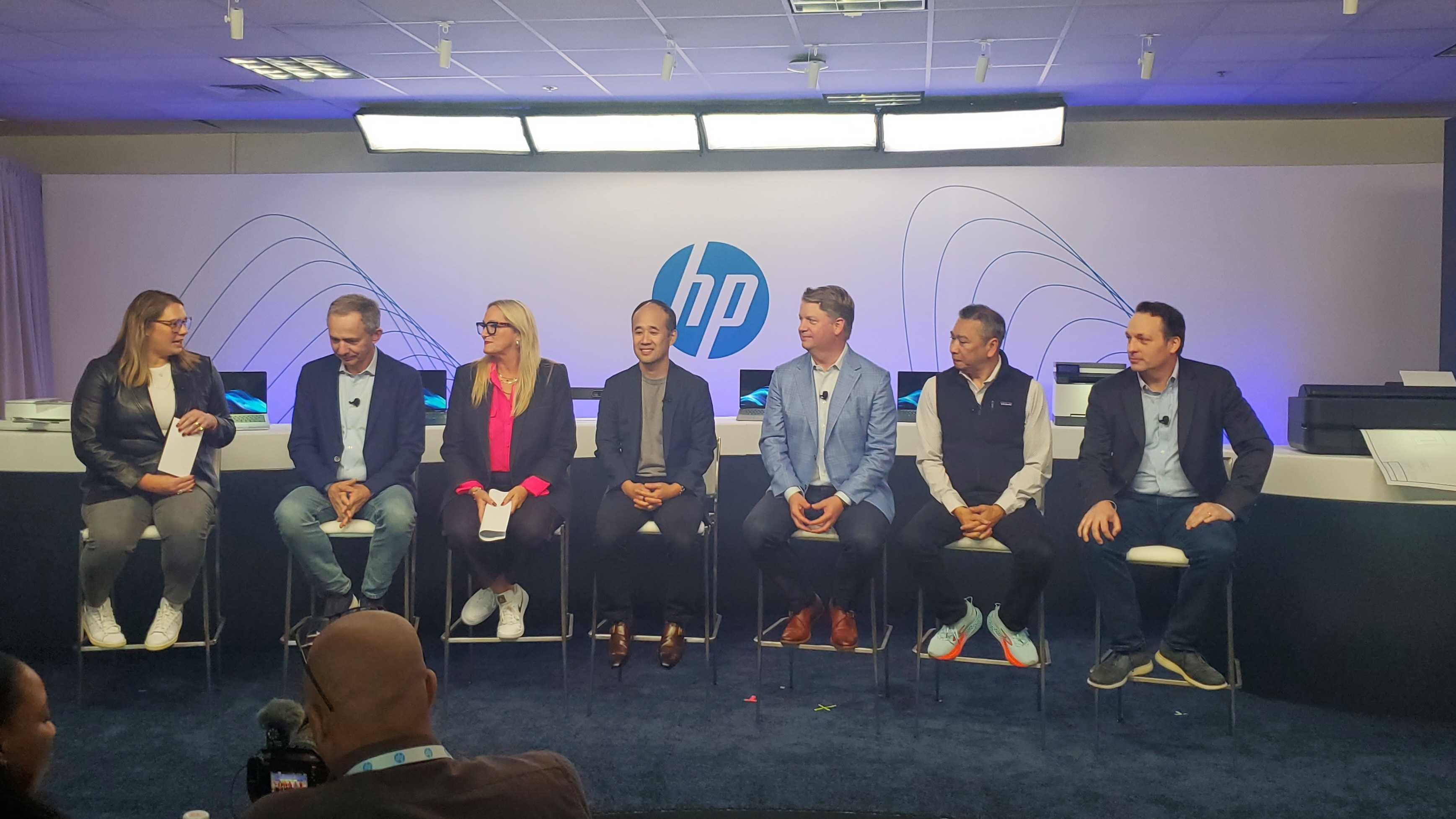HP makes bold claims that it can improve your life with AI, but can it back them up?
Do its claims hit the mark?

HP hosted its HP Imagine 2024 event, which debuted new AI-based technology and devices that will see their launches later in 2024 and into 2025. While there was plenty of overlap in topics between this event and HP’s event back in July 2024, we had some new surprises come forth as well.
Two of them include the announcement of the OmniBook Ultra Flip - an impressive looking and lightweight 2-in-1 AI laptop that’s built for flexibility - and the EliteBook X, which is touted as being the "most powerful" AI PC that features the "best in AI performance," as stated by HP in its presentation.
Other tools that were mentioned - both old and new - are HP Print AI which will pair with its upcoming HP printers, Perfect Output (which helps with printing formatting), Cyberlink, HP Gen AI Lab, HP Wolf Security, and a new HP app that connects all your HP devices.
There was a common theme throughout the event: workers don't have a healthy relationship with their work. To prove this, HP conducted research into these claims which it presented via infographics. According to HP's research, only 27% of workers are satisfied with their workspace.
The link here is that AI is the key to unlocking a better relationship with work; for instance, the number of people who use AI surged to 66% in 2024 from just 38% last year, and those who have made the switch see a massive increase in job satisfaction while those who avoid using it are less satisfied and more fearful of the tech.
People, in fact, do better in their work with AI, as stated by The Work Relationship Index score for knowledge. Workers who use AI scored 11 points higher compared to non-AI users. These are points hammered in by HP, which follows that HP can leverage this the most.
It seems that HP is working to dispel a lot of these worries by focusing more on how AI is a tool to partner with and aid rather than be a replacement for people. The choice of being able to use AI locally is huge, as it means that HP and AI chatbot companies are unable to train their models on your data. Safety, privacy, and security seem to be major concerns for HP as well, and it addresses them with its malware defense under the aforementioned Wolf Security that's been made available to consumers with the latest laptops.

There’s also HP Gen AI Lab, which is a feature that prevents "hallucinations" in AI data sets. Hallucinations are incorrect or misleading information generated by an AI system, occurring when AI models make mistakes based on insufficient training data, incorrect assumptions, or biased data.
Another major concern is sustainability, or how much power AI consumes whenever it computes a query. This topic wasn't spoken of nearly as much but was touched on during a media meeting with several HP representatives. Essentially, HP believes that because the NPU handles most of the workload in AI use, it decreases the GPU and CPU's power consumption, making the laptops more energy-efficient and sustainable.
It was also mentioned that many of these companies with workstations already have strict power consumption standards in place, mainly because of limits to how much energy a warehouse can use. This of course doesn’t address the very real reality that despite these restrictions, AI is still draining natural resources at an alarming rate.
HP also asserted that by 2025 it should be 100% free from any single-use plastic in its product packaging and that it’s so far used at least one billion tons of reclaimed ocean-bound plastic, reclaimed fishing nets, and used cooking oil to manufacture its products. When questioned, HP stated that its partners also undergo an onboarding process in which they must meet strict requirements to partner with the company.
What’s most fascinating is that AI is, as usual, used interchangeably between tools that are useful in daily life and evolutions, and the more recent generative AI that skyrocketed in popularity and is far more controversial. While I won’t outright accuse any company of ill intentions, and it’s very clear that HP is leading the charge in many of its claims and goals compared to its competitors, the fact that the definition of AI is often so muddled in these presentations is something noteworthy.
However, it does seem that HP is striving toward and has made significant gains in the various points of contention in AI including sustainability, security, data set hallucinations, integrity, and daily life use. Compared to other corporations, there is a real and measured effort to ensure its AI policies and practices are as ethical as possible (within the framework of capitalism) and such efforts have had tangible results.
As I was told by HP, “Our best isn’t good enough” when it comes to making real changes that impact the future of our world. With that said, here’s hoping that HP’s best efforts will be good enough years down the line. Anything short of that could have dire consequences for us all.
You might also like
Get daily insight, inspiration and deals in your inbox
Sign up for breaking news, reviews, opinion, top tech deals, and more.

Named by the CTA as a CES 2023 Media Trailblazer, Allisa is a Computing Staff Writer who covers breaking news and rumors in the computing industry, as well as reviews, hands-on previews, featured articles, and the latest deals and trends. In her spare time you can find her chatting it up on her two podcasts, Megaten Marathon and Combo Chain, as well as playing any JRPGs she can get her hands on.